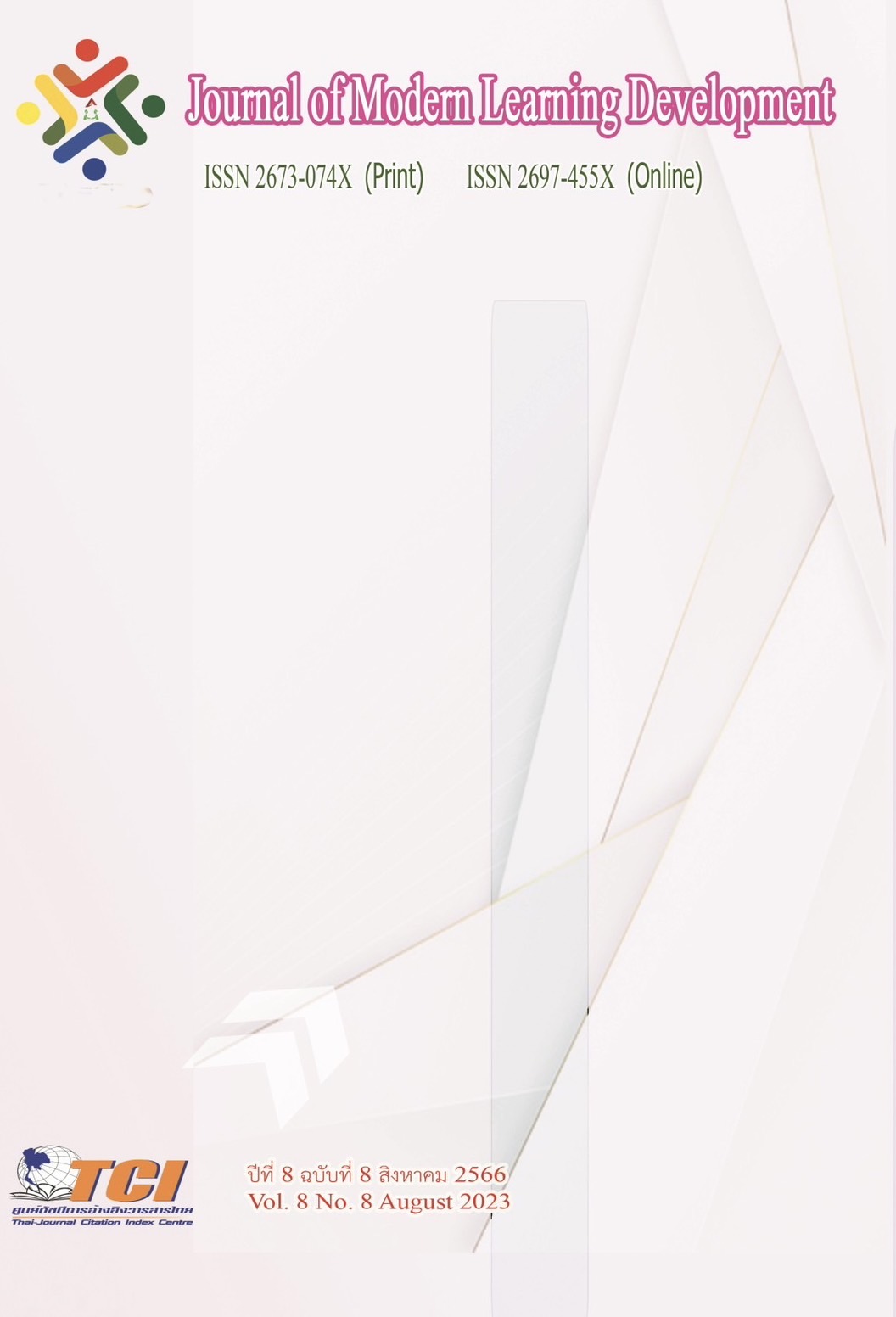The Political Party's Policies and Solutions for Addressing Digital Divide Issues in the 2023 Election Campaign
Main Article Content
Abstract
This article raises the inquiry as to whether different political parties presented digital policies within their campaign strategies during the 2023 general election, and how the prioritization of content related to digital issues was approached. The researcher employed qualitative research methods, encompassing the examination of documents pertaining to political party policies sourced from the Office of the Election Commission of Thailand, mass media, communication channels, electronic media platforms, as well as the content contained within campaign advertisements of six prominent political parties: Pheu Thai Party, Kao Klai Party, Palang Pracharath Party, Ruam Thai Sang Chart Party, Prachathipat Party, and Bhumjaithai Party. The gathered data were subsequently meticulously organized, scrutinized, and interpreted in relation to its substantive content.
The research findings indicate that various political parties have given importance to the issue of digital divide reduction within their policies, with a particular focus on welfare state and digital literacy issues that are utilized for electoral campaigns to the greatest extent. Other digital-related policies are ranked as secondary priorities, aiming to eliminate disparities, alleviate poverty, and accelerate the country's economic recovery. These policies incorporate digital technology as an integral part of daily life through welfare state initiatives. However, two parties, namely Ruam Thai Sang Chart Party and Bhumjaithai Party, did not present any digital-related policies and did not address digital technology issues in their campaign strategies. Furthermore, these policies are still lacking comprehensive coverage in four areas, namely 1) the development of basic digital skills for the elderly, 2) providing fundamental knowledge on cyber security, 3) developing digital development plans in collaboration with local communities, and 4) fostering collaboration between the public and private sectors.
Article Details
References
ปัทมา เจริญกรกิจ. (2565). ‘สิงคโปร์ดิจิทัล’ มุ่งสู่สังคมใหม่ที่ไม่ทิ้งใครไว้ข้างหลัง. ออนไลน์. สืบค้นเมื่อ 25 มกราคม 2566. แหล่งที่มา: https://www.thekommon.co/sg-digital/.
พันธ์ศักดิ์ อาภาขจร. (2563). ช่องว่างทางดิจิทัล: ขวากหนามของการเรียนออนไลน์. ออนไลน์. สืบค้นเมื่อ 25 มกราคม 2566. แหล่งที่มา: https://www.isranews.org/article/isranews-article/88963-pansak.html.
เรวัต แสงสุริยงค์. (2561). ความพยายามลดช่องว่างด้านดิจิทัลในสังคมไทย. วารสารอิเล็กทรอนิกส์ Veridian มหาวิทยาลัยศิลปากร (มนุษยศาสตร์สังคมศาสตร์และศิลปะ). 11 (3), 1056-1084.
สำนักงานคณะกรรมการการเลือกตั้ง. (2566). นโยบายของพรรคการเมืองที่ส่งผู้สมัครรับเลือกตั้งสมาชิกสภาผู้แทนราษฎร แบบบัญชีรายชื่อ. ออนไลน์. สืบค้นเมื่อ 23 เมษายน 2566. แหล่งที่มา: https://www.ect.go.th/ect_th/news_page.php?nid=20499
สำนักงานคณะกรรมการดิจิทัลเพื่อเศรษฐกิจและสังคมแห่งชาติ. (2560). พระราชบัญญัติพัฒนาดิจิทัลเพื่อเศรษฐกิจและสังคม พ.ศ. 2560. กรุงเทพมหานคร: สำนักงาน.
สถาบันบัณฑิตพัฒนบริหารศาสตร์. (2566). การสำรวจคะแนนนิยมทางการเมือง. กรุงเทพมหานคร: สถาบัน.
สถาบันบัณฑิตพัฒนบริหารศาสตร์. (2566). 6 พรรคกับโอกาสได้เป็นรัฐบาล. กรุงเทพมหานคร: สถาบัน.
Cullen ,R. (2001). Addressing the digital divide. Online Information Review. 25 (5), 311-320.
Reggi, L. and Gil-Garcia, J. (2021). Addressing territorial digital divides through ICT strategies: Are investment decisions consistent with local needs?. Government Information Quarterly, 38 (2). Retrieved March 20, 2023. from : https://doi.org/ 10.1016/j.giq.2020.101562
Royall, E. (2021). Addressing the Digital Divide Taking Action towards Digital Inclusion. United Nations Human Settlements Programme (UN-Habitat). Retrieved April 11, 2023, from : https://shorturl.asia/1Ple5
Sharma, R. and Mokhtar, I. (2008). Bridging the Digital Divide in Asia Challenges and Solutions. The International Journal of Technology, Knowledge, and Society, 1 (3), 15-31.
The Institute of Electrical and Electronics Engineers. (2021). Digital Divide in Developing Countries: Why We Need to Close the Gap. Retrieved May 28, 2023. from : https://ctu.ieee.org/digital-divide-in-developing-countries-why-we-need-to-close-the-gap/


